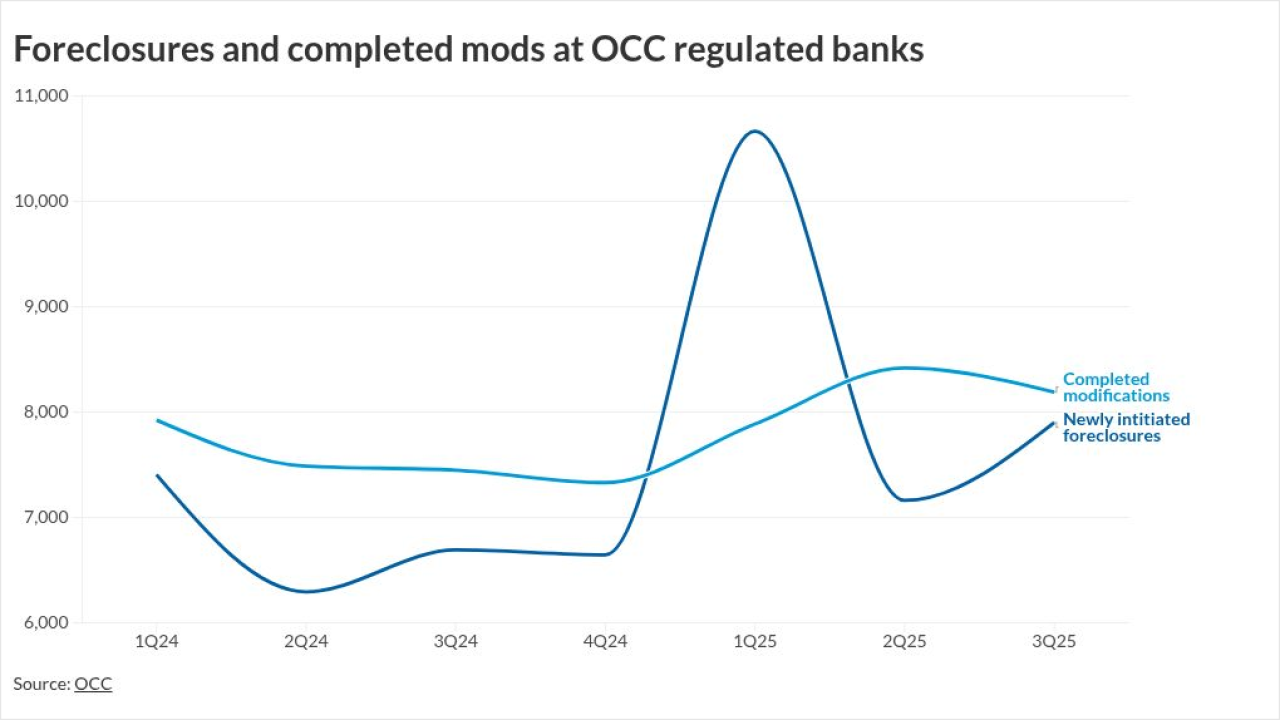The new regulator of the housing finance agencies known as Fannie Mae and Freddie Mac, Mark Calabria, is on the record as saying that these government-sponsored entities should be moved to the private sector. His boss, Treasury Secretary Steven Mnuchin, makes clear that he wants the GSEs off the federal balance sheet.
"My overall view is on the one hand, I want to make sure there's access to liquidity and capital for consumers," Mnuchin told Bloomberg News in December. "On the other hand, I want to make sure whatever we do in restructuring [the GSEs], we don't put the taxpayer at risk."
The discussion in and around what to do with the GSEs as part of a "reform" process illustrates the irrational aspects of a liberal democracy. Fannie Mae and Freddie Mac are treated in the credit markets as instrumentalities of the United States supported by the full faith and credit of the U.S. Treasury. But in a legal sense, the GSEs are quasi-private corporations chartered by Congress and with private shareholders.
The quasi-private GSEs perform a commercial role in facilitating residential mortgage finance, but also have a public component in terms of a mandate to support affordable housing. The private and public policy objectives of the GSEs are made possible by the fact that investors treat the GSEs as sovereign credits, fully supported by the U.S. Treasury. And so long as the GSEs remain under a federal conservatorship, that is in fact the legal reality.
Once Congress and/or the Trump administration start to move the GSEs out of conservatorship, however, investors' perception of the risk characteristics of the GSEs may start to change. Fannie Mae and Freddie Mac already have higher risk based capital weights for U.S. banks that buy their debt. Ginnie Mae, a federal agency supported by the full faith and credit of the United States, has a zero risk weight just like U.S. Treasury securities. Should the Congress or the Trump administration move in the direction of reducing the credit support for the GSEs, then the cost of funds of Fannie Mae and Freddie Mac will rise and their ability to fulfill any public housing mandate will disappear.
The economic and financial reality of the backing by the Treasury for the GSEs are reflected in their low cost of funding and the fact that they are rated AAA by the major rating agencies. In general, no private corporation can qualify for an AAA rating without either (1) explicit credit support from an AAA sovereign nation or (2) substantial credit enhancement. The arguments from private investors that have opportunistically purchased GSE common and preferred stock that the GSEs can be "recapitalized and released" ignore the fact that private capital is largely irrelevant to the credit standing of the GSEs.
Those seeking to "recapitalize" the GSEs by cutting off the return on capital to the U.S. government are really attempting to buy the GSEs back from the taxpayers by using money that belongs to the taxpayers. The hedge funds and private individuals that own GSE shares are not talking about injecting any of their own cash into the companies. If you accept the idea that the taxpayers are due a return on both the implicit and explicit capital advanced to keep the mortgage market operating, there are no earnings to be retained in the GSEs until the government is truly out of the picture.
One option that has been discussed is for the Treasury to exercise its warrant for shares in the GSEs and then sell the shares in a public offering a la General Motors when the automaker exited government ownership. If at the same time the credit support from the Treasury for the GSEs was ended once and for all, then the two entities in theory could start to accumulate capital from their now fully private earnings.
The trouble with this scenario, however, is that the higher funding costs for the "privatized" GSEs would make profitability difficult if not impossible to achieve. Both entities would likely lose their AAA ratings and debt investors would need to reprice the risk accordingly. Indeed, selling Treasury's shares in the GSEs without an explicit credit wrapper from Treasury might be well nigh impossible.
The experiment that Congress began half a century ago by selling private shares in the GSEs to the public typifies the contradictory tendencies of Washington when it comes to fiscal issues. The idea that the GSEs could continue to perform their current role in housing finance as full private entities is laughable to participants in the global debt markets.
In the Washington of the 1970s, seeking to hide the cost of the Vietnam War through a ludicrous strategy of selling the GSEs to private investors somehow made sense. Yet today the idea of ending taxpayer support for the GSEs had become a very dangerous talking point. On the day that Washington convinces the global credit markets that the GSEs are no longer supported by the U.S. Treasury, housing finance as we have known it will change forever.
The fact is that the GSEs are creatures of Congress and are de facto backed by the full faith and credit of the U.S., regardless of what the law may say. Welcome to Washington. Mess with this convenient fiction and liquidity in the secondary mortgage markets will be vastly reduced. Without the subsidy provided by the federal government, the revered 30-year mortgage will likely disappear as the market for secured mortgage finance evaporates. As the old saying goes, be careful what you wish for Secretary Mnuchin — you may get it.




